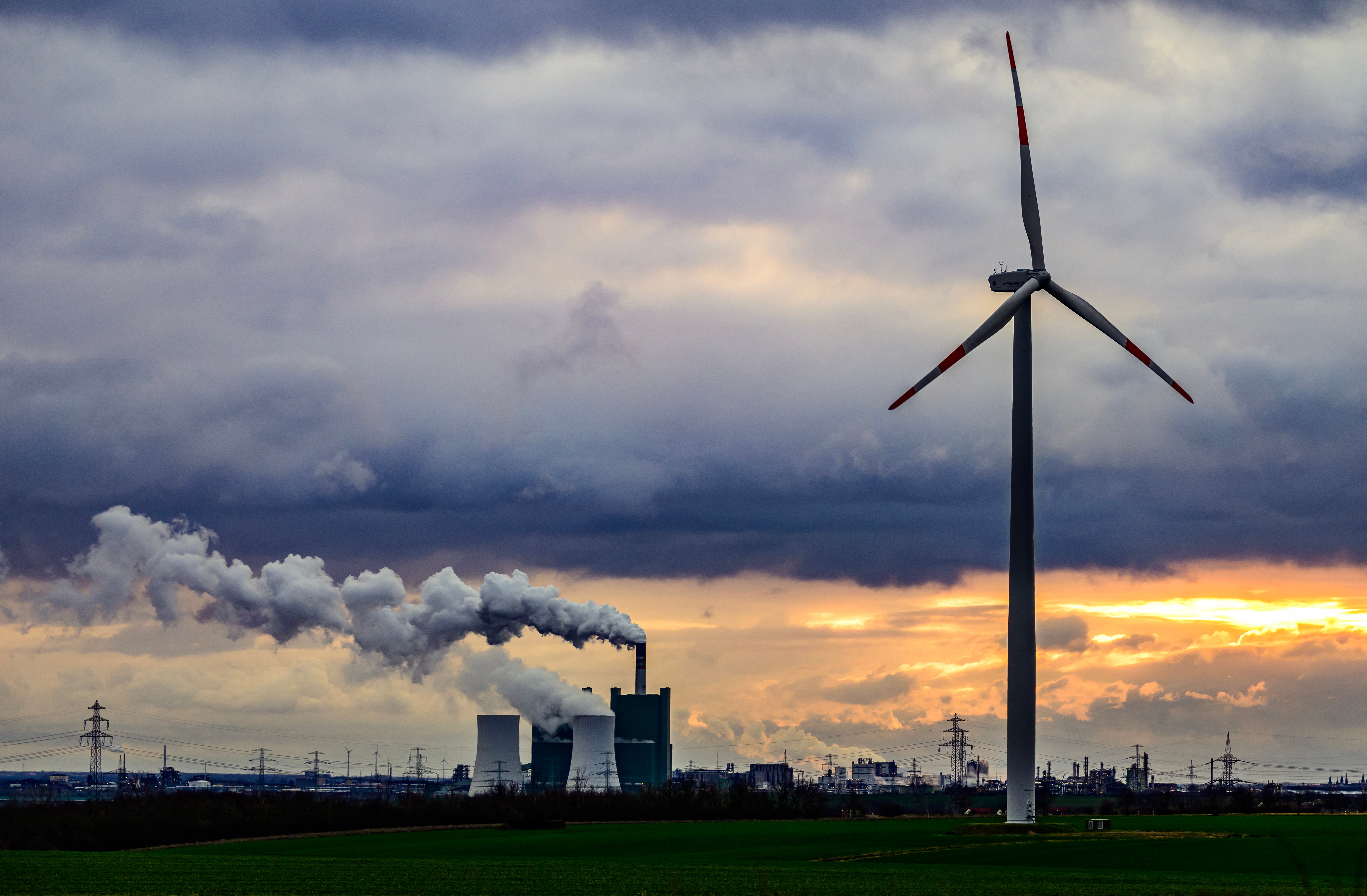Germany’s carbon emissions hit 70-year low, new study finds
While there’s still more work to be done, researchers say Germany’s carbon emissions fell 56 per cent from 1996 and are at their lowest since the 1950s

Your support helps us to tell the story
From reproductive rights to climate change to Big Tech, The Independent is on the ground when the story is developing. Whether it's investigating the financials of Elon Musk's pro-Trump PAC or producing our latest documentary, 'The A Word', which shines a light on the American women fighting for reproductive rights, we know how important it is to parse out the facts from the messaging.
At such a critical moment in US history, we need reporters on the ground. Your donation allows us to keep sending journalists to speak to both sides of the story.
The Independent is trusted by Americans across the entire political spectrum. And unlike many other quality news outlets, we choose not to lock Americans out of our reporting and analysis with paywalls. We believe quality journalism should be available to everyone, paid for by those who can afford it.
Your support makes all the difference.As we say goodbye to 2023, the hottest year on record thanks to the ongoing climate crisis fuelled by carbon emissions, the new year begins with a glimpse of good news: Germany hit its lowest carbon emissions in 70 years thanks to a drastic cut in coal usage.
In 2023, the nation hit 673 million tonnes of carbon emissions, a 46 per cent fall from 1996 and the lowest since the 1950s, according to a study from German thinktank Agora Energiewende. The drop in emissions is a positive sign after the country temporarily ramped up coal usage to combat energy shortages caused by Russia’s war in Ukraine.
“2023 was a two-speed year as far as climate protection in Germany is concerned: the energy sector notched up a climate policy success with its record level of new renewable power, taking us closer to the 2030 target,” Simon Müller, director of Agora Energiewende Germany, said in a statement.
Mr Müller is referring to the nation’s goal to both reduce its emission levels by 65 per cent from 1990 and generate 80 per cent of its energy supply from renewables by 2030.
Last year, the German Climate Ministry said that laws already in place or soon to be passed would reduce carbon emissions by 900 million metric tons. Even with current measures, officials noted there would still be an emissions gap of 200 million tons that would require additional action to close.
However, Agora Energiewende estimates only 15 per cent of the emissions saved in 2023 constituted “permanent emissions reductions” resulting from new renewable energy sources.
“We don’t consider the emissions reductions seen in the industrial sector to be sustainable,” Mr Müller said.
Instead, half of the emission cuts are likely due to short-term effects like lower electricity prices, according to the think tank.
Agora Energiewende recommended German officials “ramp up investments” to achieve their climate goals, such as by allocating state funding for climate-neutral heating systems and investing in electricity, heating and hydrogen grids.
Join our commenting forum
Join thought-provoking conversations, follow other Independent readers and see their replies
Comments